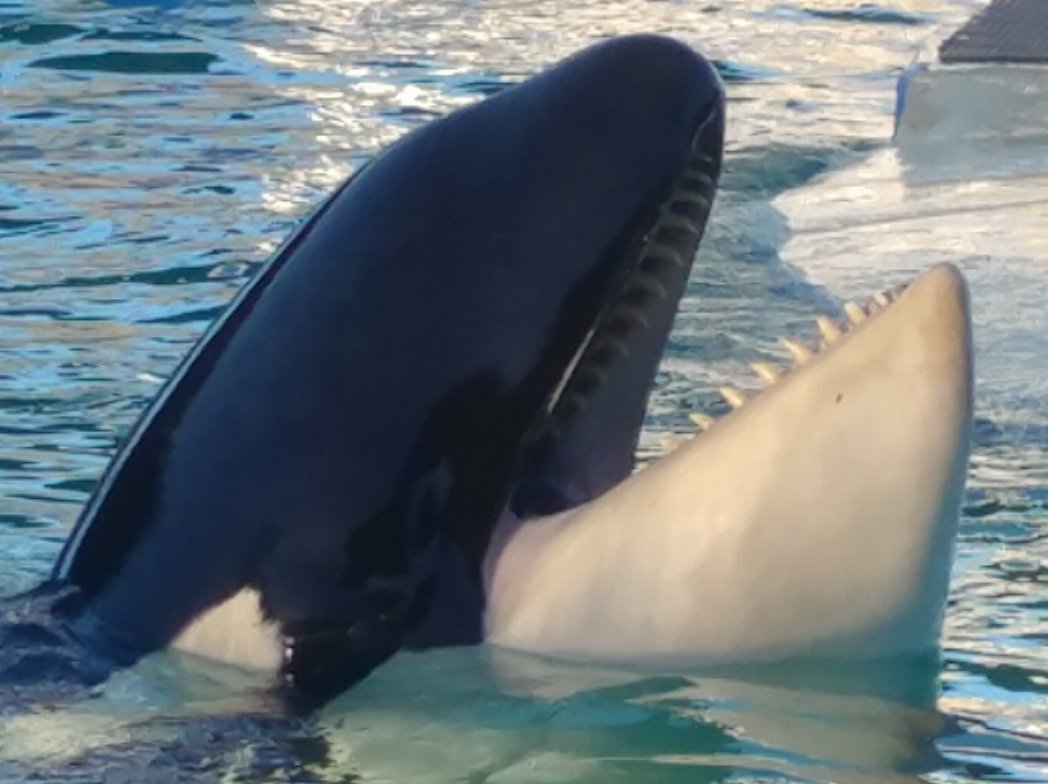Is Toki damaged by captivity?
Tokitae’s teeth are still in remarkably good condition. Photo by Rachael Andersen, Nov. 13, 2020.
A few months ago an important paper was published to establish the harm done to the brains of captive elephants and cetaceans. Putative neural consequences of captivity for elephants and cetaceans by Bob Jacobs, et al. provides “a substantive hypothesis about the negative impact of captivity on the brains of large mammals” The paper supplements observations of pathological behavior like chewing on hard surfaces or head-banging against a wall, and biomedical symptoms of stress, and adds neurological damage that likely accompany such symptoms.
The study doesn’t examine the brains of large mammals but rather extrapolates from smaller mammal brains to hypothesize that similar effects of captivity occur in large mammals, on the safe assumption of fundamental similarities due to evolutionary continuity across species. The study also doesn’t involve orcas, the largest of the captive cetaceans, although dolphins are often mentioned.
However, the title and the likely impression by most readers might lead them to believe that all large mammals must also suffer brain damage after long term captivity. That argument could be raised to assume Toki has become incapable of surviving the stress of transport and relocation in natural seawater, and that she must be too cognitively impaired to be able to function in the waters where she was born and raised.
But Toki doesn’t act out in any of the ways described that would accompany brain damage. Se doesn’t grind her teeth chewing on things or show eating disorders, or bob her head repetetively.
She also has shown that she recognizes a friendly person and will trust and interact with someone who talks with love and affection toward her. She responds and will cooperate with someone she trusts. Rachael Andersen built such a relationship with Toki in Nov. 2020 when she went to six shows in three days, after it reopened from being closed for six months for Covid. That makes the transport and relocation much easier, if she's accompanied by people she can trust.
Toki may be different than most captive orcas in her ability to stay strong even after 51 years in that tank. When people say she must be damaged they probably aren't considering what we know about her health and condition, her history of survival through severe social and environmental deprivation, and the cultural bonds that make up her personal identity. Family bonds in her family are stronger than any other in nature (both offspring stay with their mothers for life) and with their immense memories in brains 5x the size of ours, we can predict that she will feel great to be back in her familiar waters.
This short drone video shows how Toki copes with the long hours, days, and years spent languishing in the tiny Seaquarium display tank: https://youtu.be/rN32MXSf3DQ.

